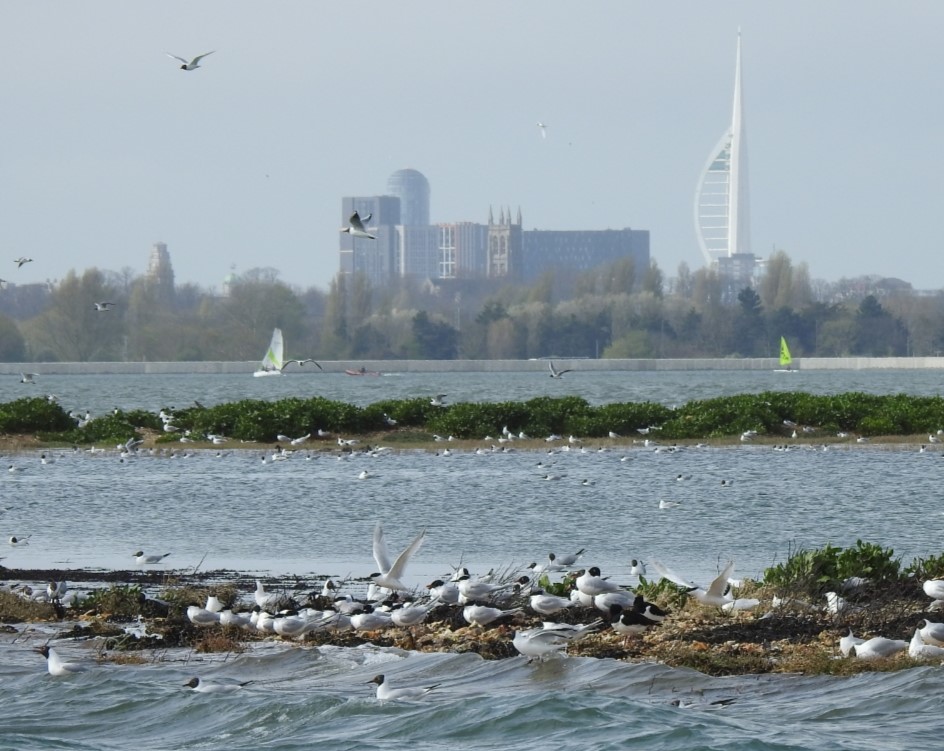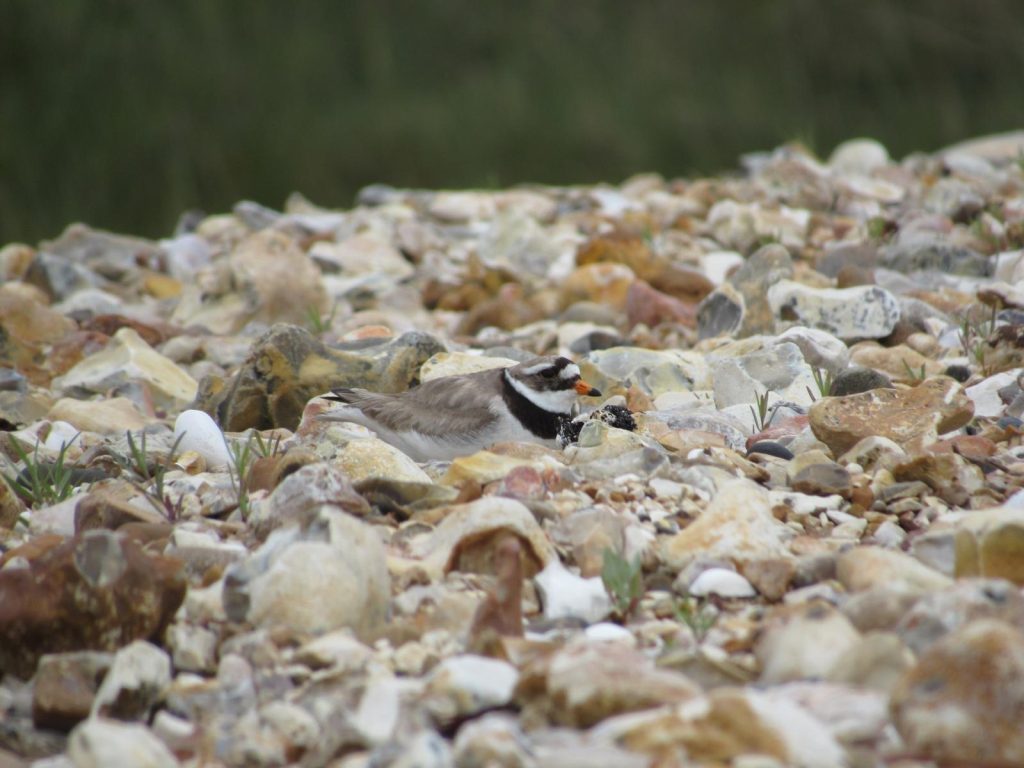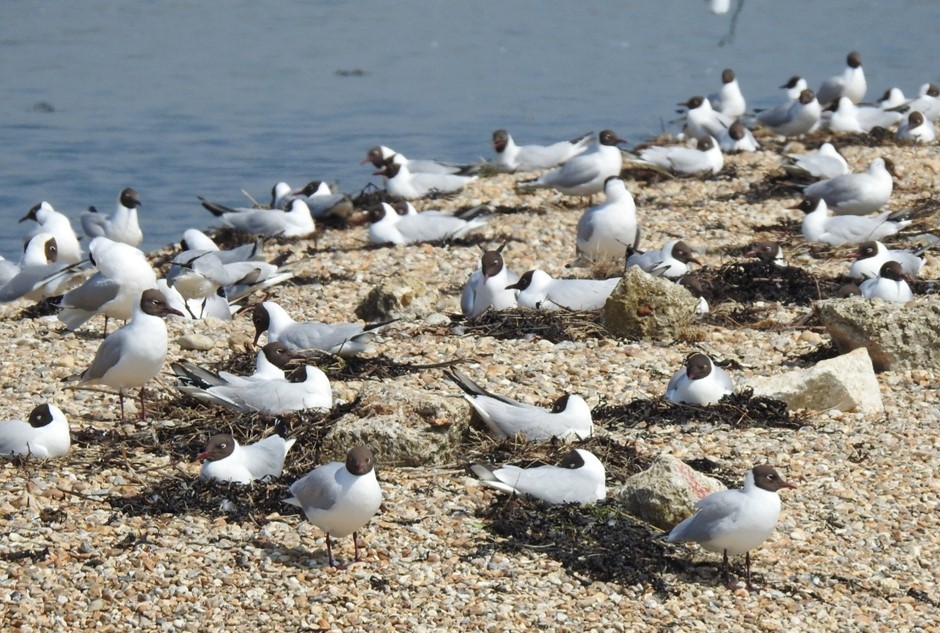Seabirds in the Solent are being supported through a series of ongoing, collaborative nature restoration projects thanks to the RSPB and partners, many of which are starting to see a positive impact. Restoration this year has focused on the Old Oysterbeds at West Hayling, and the Medmerry nature reserve, with results already being seen.

What have they been doing?
The RSPB and partners have been delivering a series of connected projects across the Solent, to halt the decline, and then restore the populations of several seabird and beach nesting bird species. This is occurring through creation of new nesting habitat, restoring degraded sites, protecting existing breeding areas, and sharing the amazing lives of these seabird cities with local communities.
Over the past 20 months, the RSPB has carried out significant habitat restoration at several sites across the eastern Solent. This has seen the restoration of the lagoon islands at the “Old Oysterbeds” on Hayling Island, a suite of works to offer new seabird nesting habitat on the islands at RSPB Medmerry reserve, the creation of a new shingle nesting site at RSPB Langstone Harbour, and the ongoing annual works to prepare the islands on other RSPB reserves like Pagham harbour for the arrival of the seabird breeding season.
In addition to restoring and creating islands, the RSPB and partners have also replaced the damaged Tern nesting rafts at the West Hayling Local Nature Reserve, and added two new ones to a lagoon at Medmerry.
At the same time, staff have been carrying out a rat control programme across several of the Eastern Solent seabird sites to tackle an ongoing threat to our seabird colonies. The programme has seen a significant impact so far, with broader and more intensive efforts already being planned for the future.
Helping beach-nesting birds
As part of the Solent Seascape Project, the RSPB is also leading or supporting several beach-nesting bird protection projects across the Solent this year. At Gunner point on Hayling Island, the Hayling Plovers team are preparing for a new Ringed Plover breeding season on the busy shores of south-west Hayling, with the annual nesting area protected by a seasonal enclosure, and volunteer rangers on site to monitor their progress.
A similar scheme is now in place at Calshot where a small part of the beach is protected for a few months for breeding Ringed Plovers. Thanks to this, 2024 saw a record number of chicks hatched and fledged. Similar pilot trials are taking place with partners at Hurst and within Chichester Harbour.

Is it working?
The results so far have been encouraging. Highlights have included the Langstone Harbour reserve seeing its best year ever for breeding Sandwich Terns in 2024, with almost 200 young fledging, and other species being successful in sites where they have not been recorded before. So far this spring, the lagoon islands at West Hayling have already surpassed the number of nests recorded last year, and Common Terns are prospecting several of the new rafts installed with nesting due to commence imminently.
Funding notes:
The works at West Hayling were delivered under LIFE on the Edge.
The works at Medmerry were delivered as part of both the Solent Seascape and our Species Survival Fund: Coastal and Wetlands: More, Bigger, Better, Joined!
The Beach nesting bird projects are being delivered as part of the Solent Seascape Project in co-ordination with other partners and volunteers.
All of the above are part of the RSPB’s wider Solent Seascape Project aim to see the seabird populations across the Solent better understood, with their decline halted and then successfully restored.




